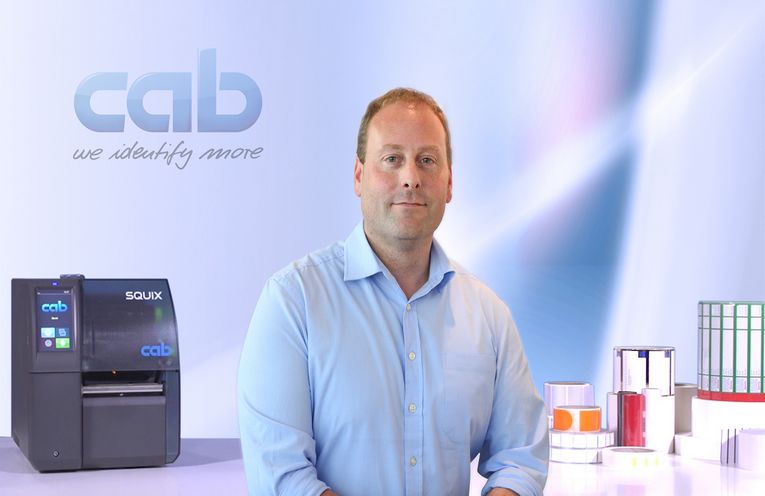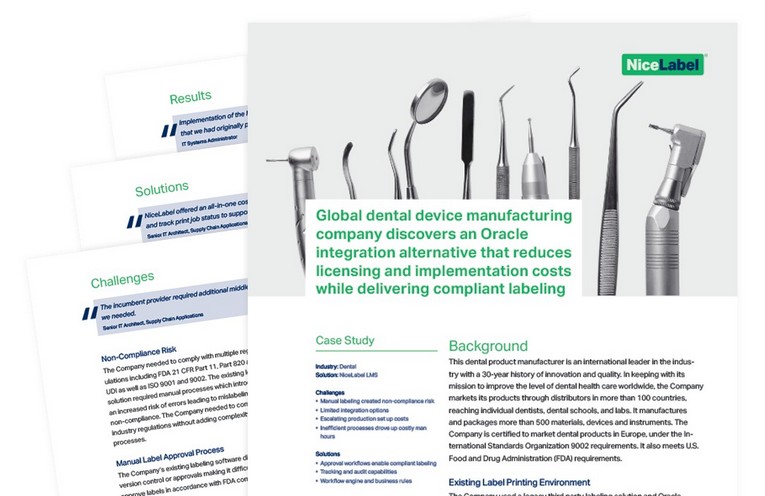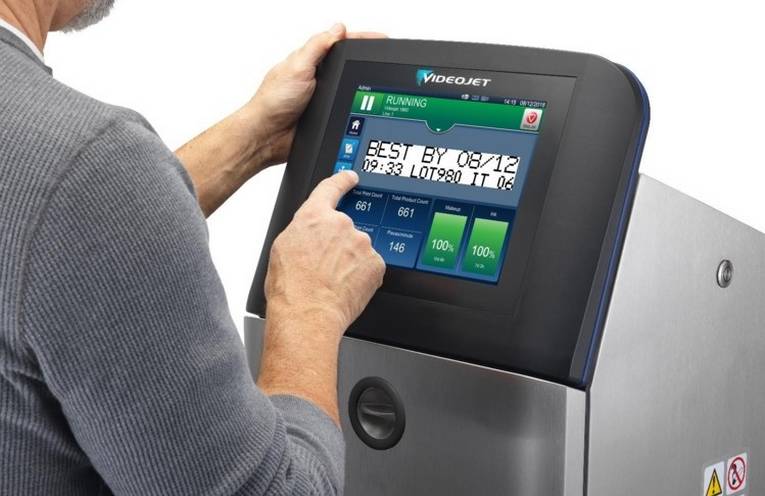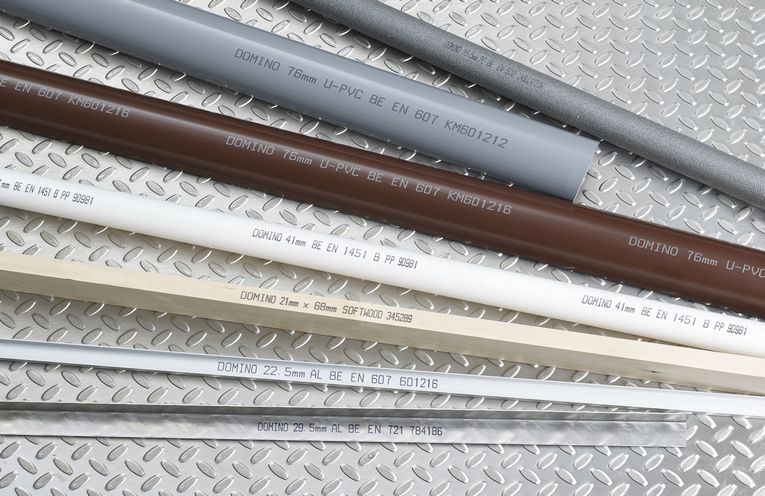Product marking meets the highest demands on quality, reliability and safety only if printers, labels and ribbons fit to one another. Heiko Weber, responsible department manager at cab, says why.
Do products need a passport?
[Weber] Let’s put it this way: “Products need labeling” is a slogan precisely chosen by cab. Every product needs at least one label – for identification or promotion, indication of ingredients or full traceability by means of barcoding. Dictionaries assign names to products. But it is labels that give them identities.
Which material suits for thermal transfer printing?
[Weber] For the most part it is papers and plastics.
What are the advantages of paper?
[Weber] Papers are highly versatile. In the applications of our customers from different industries, they are processed as a smooth and wood-free standard, rough surfaced or specifically coated.
And plastic labels?
[Weber] Polyethylene, polypropylene, polyester and polyimides are highly resistant to humidity, heat and tear. They are first choice when it comes to, for example, marking products in the metal and electronics manufacture. Outdoor storage, pharmaceutical and cosmetic products are further applications.
Which aspects decide upon the choice of material?
[Weber] Every business and every industrial sector sets specific demands on the quality of a label and provides different framework conditions. Our job is to evaluate all these factors. We apply the demands to the specifications of the label materials and thus make a recommendation to the user.
What about deliverability?
[Weber] In many cases, the appropriate labels are included already in our standard range. By providing sufficient quantities of these in stock, we are ready to deliver immediately.
What if an application demands a special label?
[Weber] We are able to manufacture labels user-specifically from more than 400 materials – plain or individually imprinted, easy to remove, extra strong adherent or resistant to chemicals, cold or heat. I cannot imagine any task not to be solved. From my personal experience I can tell you that our customers appreciate being accompanied by a cab expert from the beginning right to the point the label solution is implemented in their processes.
How can we imagine a special label? Two examples would do.
[Weber] We provide metallized plastic labels for the marking of typeplates. Window and door manufacturers may ask for labels with a protective lamination aiming in easy removal after the wood finishing.
Are reliable processes a selling point?
[Weber] Even a crucial one! By means of an optimized interface, customer demands in the matters of processes and its approvals can be represented and successfully realized. As regards label materials, we cooperate with a partner certified according to IATF 16949. On this occasion, we offer structured sampling corresponding to PPAP methods. cab quality management complies with the international ISO 9001:2015 standard and has been adapted to high level structure.
Is it beneficial to get printers, labels and ribbons from one provider?
[Weber] Definitely! The surfaces of our labels are optimized for high resolution in thermal transfer printing. The diameters of rolls and cores as well as the windings correspond with cab printers. In addition, our labels can be optimized for automated processing, resulting in maximum process reliability. Our ribbons provide special back coating to better dissipate residual heat, avoid static electrification and friction. This improves the quality of the imprint and extends the lifecycle of a print head.
Talking of ribbons – what decides about quality?
[Weber] Depending from the application and the label material in use, we provide the qualities wax and resin, complemented by resin/wax mixtures.
What labels fit perfectly with wax ribbons?
[Weber] Wax ribbons make sense particularly when printing on paper, because wax melts very well into the label material. High-contrast images and good density are achieved already at low print energy.
And when are resin ribbons needed?
[Weber] Resin/wax mixtures offer flexibility in case of universal printing on smooth paper or plastics. The density is as good as with ribbons consisting of pure wax. However, mixtures are more resistant to smear and scratching. When printing in rough surroundings on plastic labels, there is hardly an alternative for pure resin ribbons. This is mainly due to their ruggedness. Synthetic resin is scratch and smear proof and resistant to chemicals and oils. Not much print energy is required.
Company profile
cab is Europe’s leading manufacturer of devices and systems to label individual components, units, products and packaging. Healthy global growth, both technical and functional lead and competent customer support are prior goals of the company. There are 400 employees in Germany and in seven subsidiaries abroad as well as 820 distribution partners in more than 80 countries to meet the targets. For more information see www.cab.de/en
forrás: cab.de 2019.11.07





